Not Dressed Up, Nowhere to Go: Dry Cleaning Takes a Hit in Brooklyn
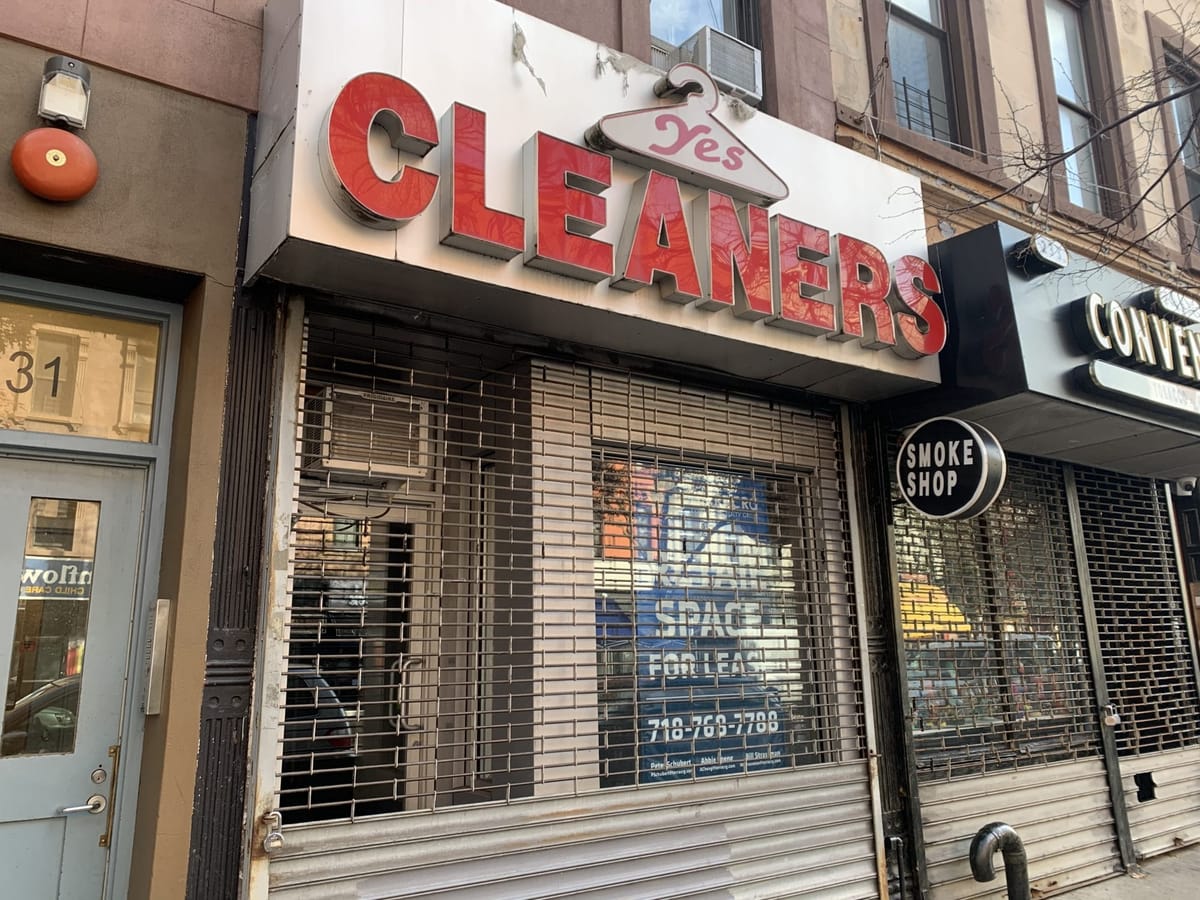
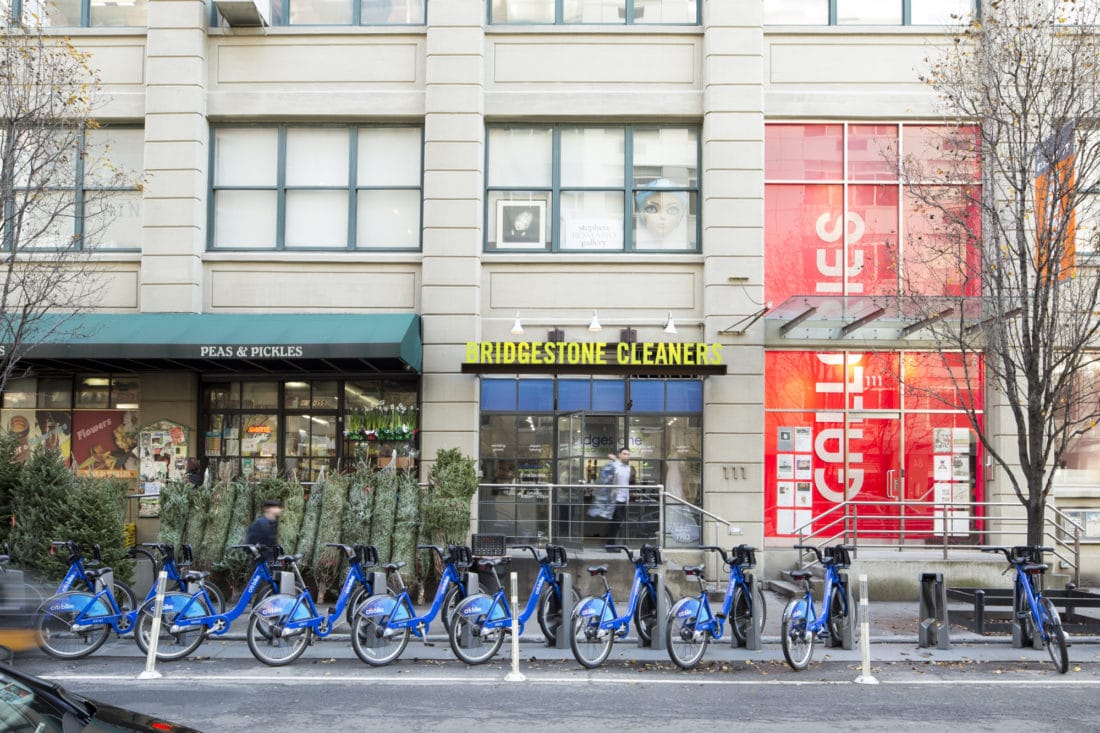
Zach Kinzer has worked at the Bridgestone Dry Cleaners and Laundry as the general manager for twelve years. His father, Ken Kinzer, opened the business in 1982, almost thirty years ago. The small, family-owned and operated company has two locations, both in neighborhoods of downtown Brooklyn. Generally, things have been good. Until now.
“We basically cut our business in half. We had to close for two months just because we didn’t feel it was appropriate for us to be open,” Zach said. Dry cleaners and laundromats were deemed essential businesses.
“As things progressed and we looked at our staff and, like everyone, was very confused about how deep this really was, we decided to close. So we lost two months of business,” Zach said. The shop closed in March and remained shut until halfway through May.
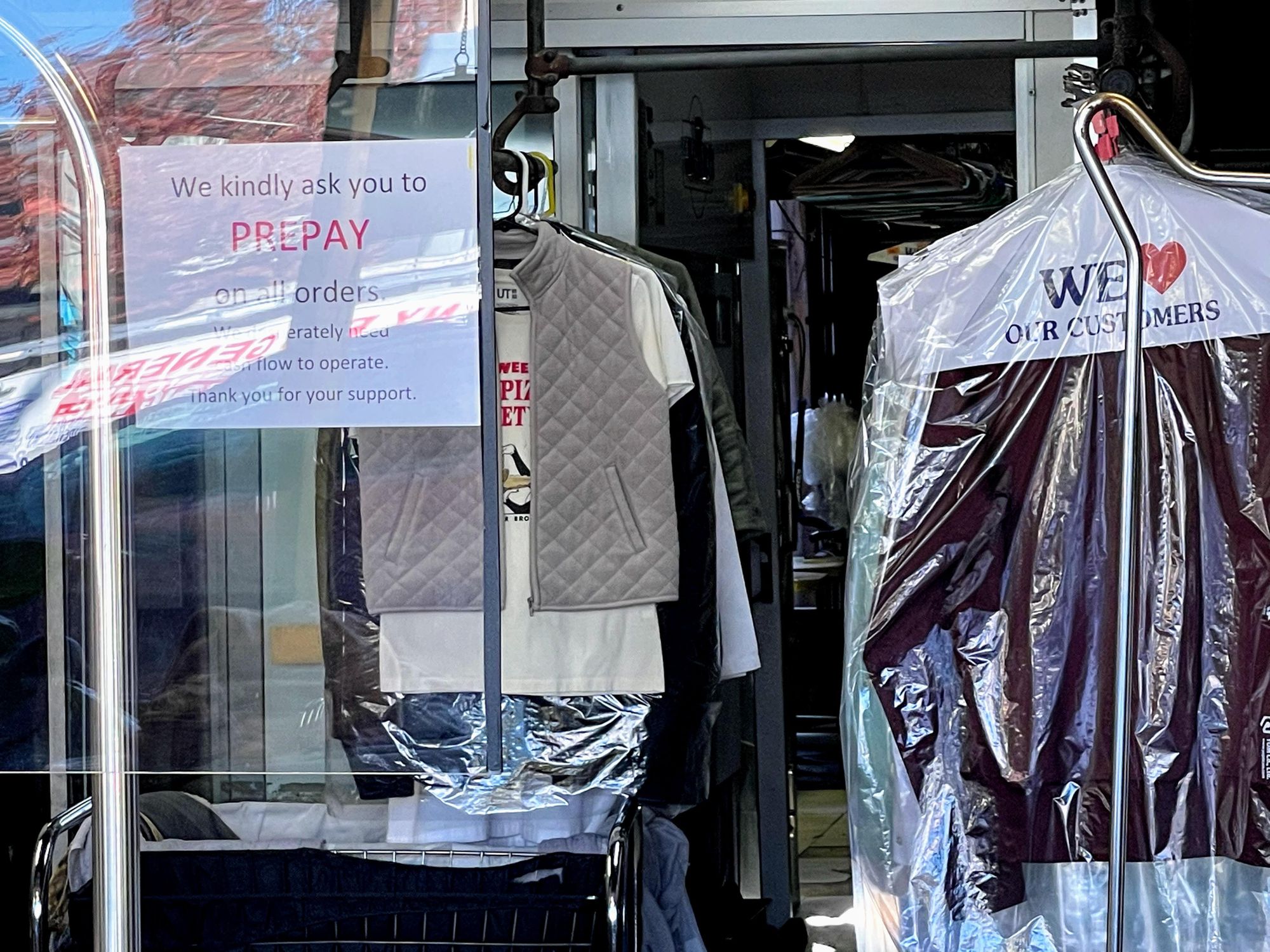
In April, Mayor Bill de Blasio said that the laundromats were kept open for a reason, defending the choice to keep them open as essential businesses and still urging caution.
“We want people to have clean clothes. The cleaning of clothes actually kills the coronavirus. That’s a good thing. But you can’t crowd into a laundromat or a supermarket or a pharmacy or anything like that,” de Blasio said.
While the number of unemployed New Yorkers is going down, according to the New York State Department of Labor (DOL), it’s not fast, and we are a ways from where the city was in February. In October, unemployment went down just seven-tenths of one percent, making the rate for October 13.2%.
Things are bleak in the laundry and personal services industry, according to the same data. The net change in employment for the sector was -32.4%.
“October ’19 to October ’20, employment in that category went down by 20,300 jobs, which represents a decline of 32.4%. Before the pandemic, this category was growing, with January ’19 to January ’20 increase of about 4.0%,” DOL Principal Economist Elena Volovelsky said in an email.
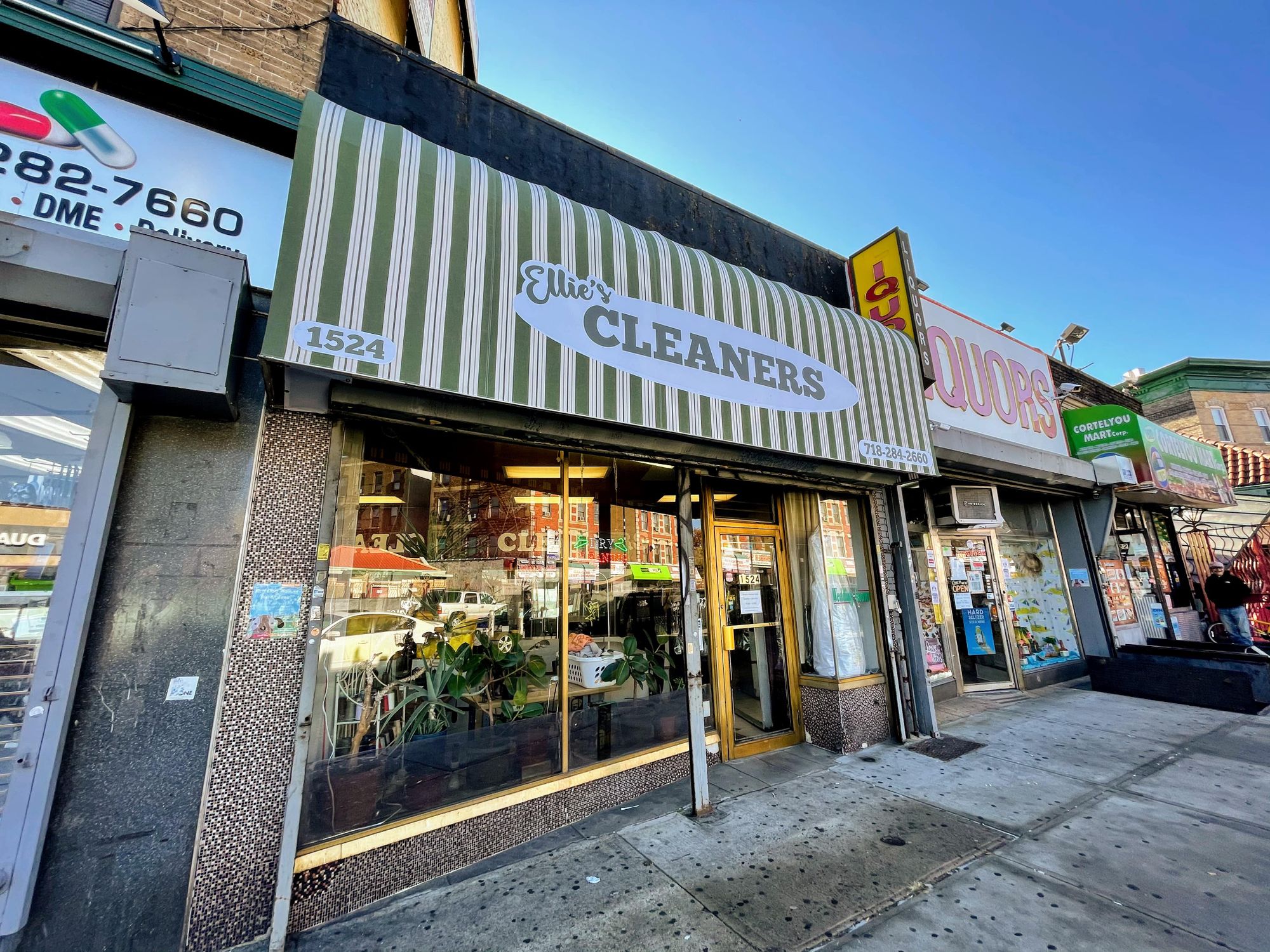
For Zach, the sharp downturn in business can be explained in part by location. According to a study reported on by the New York Times, Brooklyn Heights, one of the borough’s wealthiest neighborhoods and the one right in between Bridgestone’s two locations, emptied out by 40% between March and May.
“I think it really is somewhat of a socioeconomic story as well. Depending on where you are, it’s almost like the higher end of clients that you had, the more they’ve disappeared,” Kinzer said, adding that the flight was likely the highest contributor to his downturn in business.
“But, even if people stayed [in Brooklyn], they wouldn’t be going out, they wouldn’t be going to work. The closing of all of [those businesses] is really the most direct hit because people aren’t engaging. They’re sitting home working in very casual clothing,” Kinzer said. He also cites the lack of restaurant linens, porter’s uniforms, and boutique clothing cleaning as part of the downturn.
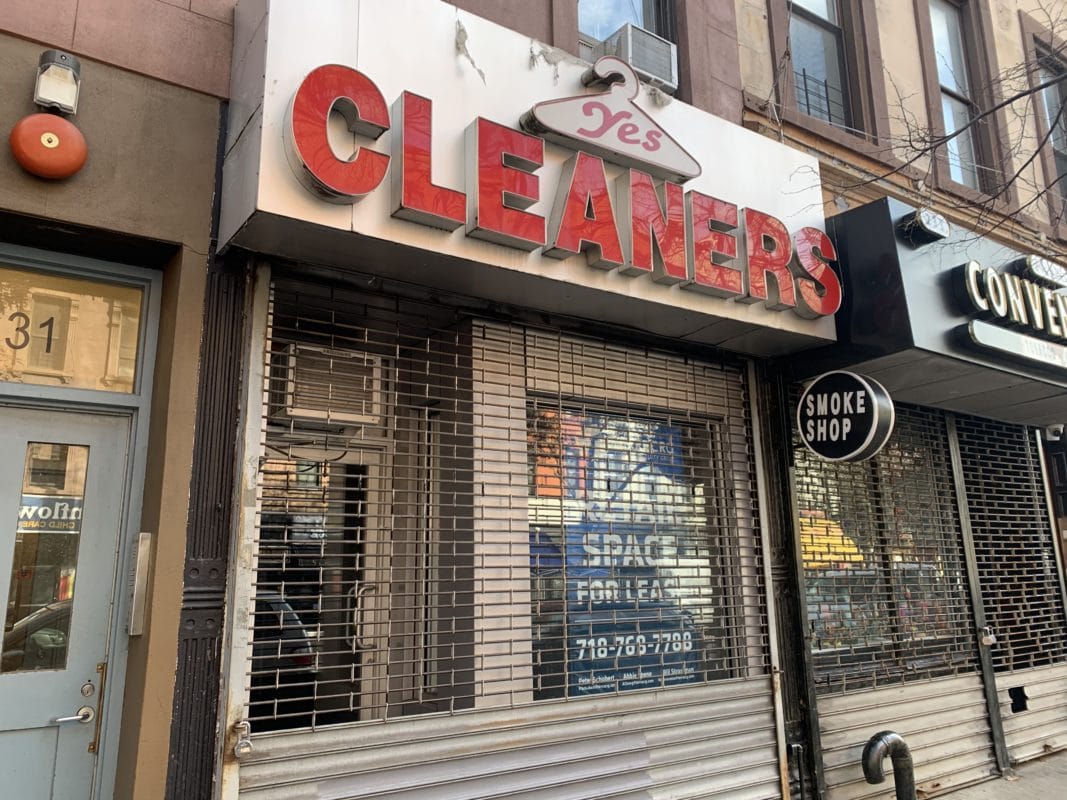
A small bright spot for Bridgestone and others like it has been the surprising uptick in the wedding gown business. They are the only Brooklyn location to be a member of the Association of Wedding Gown Specialists, a group that designates cleaners trained specifically to handle the gowns.
Sally Conant, the Executive Director of the Association, says that this uptick has been true across the board of the multinational business in the group.
“For our members, who all specialize in cleaning wedding gowns, it’s a beacon of hope. If regular clothing is not going to come back, being a specialist in some field or other is going to be more important,” Conant said.
Conant turns to the likelihood that people may be having two weddings now— a smaller, COVID-friendly ceremony at home, and then the larger wedding at a venue once it’s permitted, since many places are not returning deposits— to explain the increase in cleanings. Kinzer puts it a different way.
“I don’t know if people are just in the moment, or for lack of a better word, feeling their mortality, and getting married,” he says with a laugh. “I don’t know what it is, but we’re getting some gowns. That’s really helpful for us, and that’s a good part of our business.”
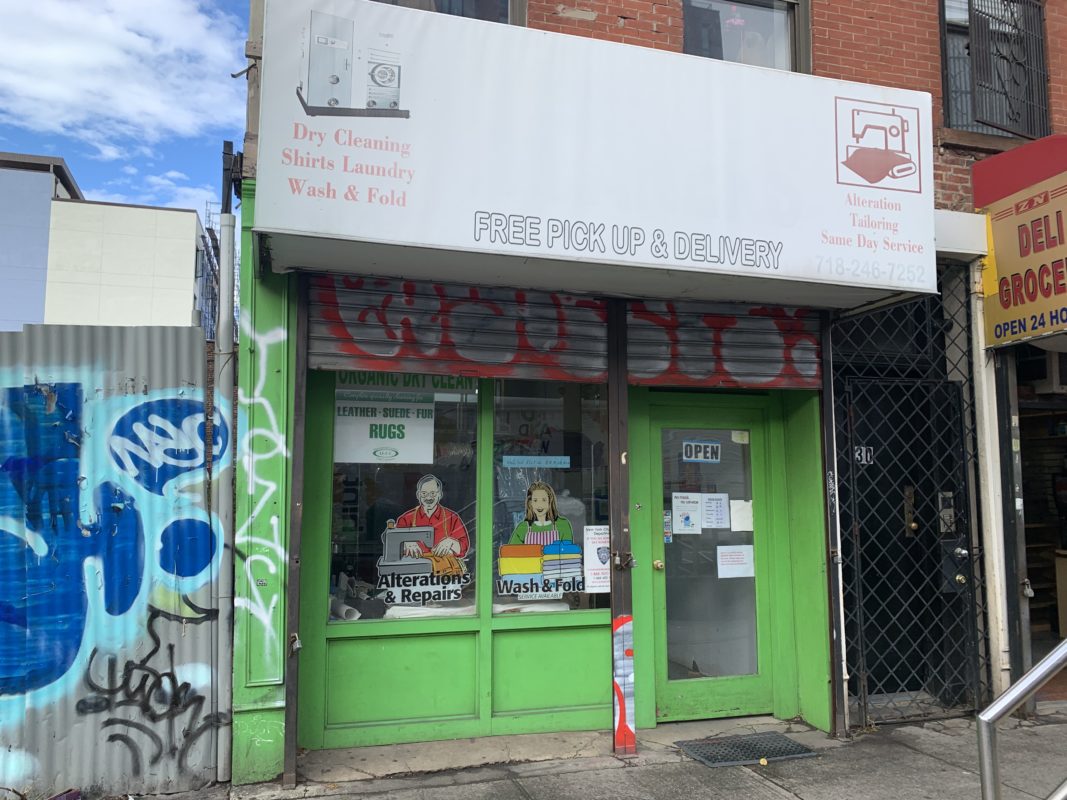
Conant reiterated Kinzer’s statement that basically no cleaners are doing better than 50% of their previous business.
As with many other businesses, one of Kinzer’s main concerns is being able to pay rent. Bridgestone was able to get a PPP loan, but that is beginning to run out.
“We’re trying to understand how to be lean. Really the question will come down to ‘can we pay rent.’ It’s hard to say right now. We don’t have answers right now. We personally don’t think that this story is over within a month’s conversation. We think this story is over in a couple of years,” he said.




